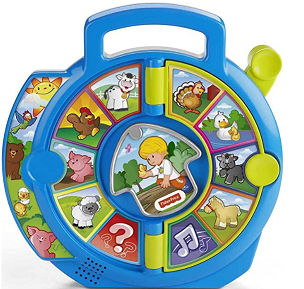Was the lightbulb over engineered?
I recently posted a question over on reddit - "Personality Types and Agile". An interesting discussion emerged about 'over-engineering' code.
I find people use the label 'over-engineering' too frequently, and I don't even think the 'great Wikipedia' gets the definition quite right.
Overengineering (or over-engineering, or over-kill) is the act of designing a product to be more robust or have more features than often necessary for its intended use, or for a process to be unnecessarily complex or inefficient. - Wikipedia
Let us take for example the 'lightbulb'. What is 'too robust?' for a lightbulb. - A bulb that lasts too long ?, A bulb that is energy efficient ? A bulb that doesn't suddenly explode when exposed to various environmental conditions ?
The lightbulb in the picture above is known as the "Centennial Light", it has this name because it is the worlds longest lasting lightbulb, burning since 1901 and has yet to burn out.
Was the lightbulb over-engineered ?
I think if you asked a scientist or engineer he/she would marvel at the achievement. Congratulate the designer and the user for showing what can be done though experimentation and careful usage. Building something as 'robust' as this lightbulb represents shinning star of what can be accomplished in our modern world.
Ask a business person and you might just get a different story. What happens to the light bulb industry when selling these near "perfect" lightbulbs to the mass public? Once everyone has an everlasting lightbulb, no one will need to ever buy any more.. and the sale of lightbulbs plummet into eventual non-existence. An everlasting lightbulb is an amazing achievement for the designer, and the customer - However - it is not in the business's best interest to produce products that never break!
Sound like a conspiracy theory ?
You may have heard of this theory before - It goes along the lines of why many diseases (eg: diabetes) have yet to be cured. It is not in Big Pharma's best interest to 'cure' diseases, because they will stop making money selling life saving drugs that do not cure but simply maintain life.. but in the case of the lightbulb - it's not a theory it's actual historical fact!
Even the Institute of Electrical and Electronics Engineers (IEEE) acknowledges the work of the Phoebus cartel who successfully created an environment to intentionally reduce the lifespan of the lightbulb (less then it's fullest potential) in order to continue to sell more lightbulbs, to you the consumer.
While the cartel does not exist today, the legacy it leaves behind is a new term known as "Planned Obsolesce". The deliberate design of products to plan to fail within a pre-defined period of time, in order to ensure people will need to continue to buy them in the future.
Planned Obsolesce occurs all the time in our modern world. Some examples include:
a) Your washing machine, which suddenly stops working within days of the warranty running out (Let me guess ? The 'agitator' failed right?)
b) Your car's check-engine light coming on just after the 100,001 reading of the odometer (I'll bet you have been told it is your failing O2 sensor that needs replaced right?!)
c) The modern cellphone, which no longer has a replaceable battery. When the battery dies you need to replace the entire phone!
d) Kitchen Cupboards, Computer Desks, and Dresser's, all of which seem to fall apart or weaken considerably within the first year. (likely due to the invention of the "cam lock nut" which while seemingly convenient for assembly tends to loosen and fall out, where a simple wooden dowel and glue will last far longer!)
None of these examples have anything to do with "over engineering", if it were up to the craftsman's, the scientists, and the engineers, these products would continue to improve in their lifespan, year after year, creating near 'perfect products'..but that isn't good for business!
Sadly, Wikipedia's definition of "over-engineering" suffers from the same consumerist / materialistic problem. It is better to have something cheap and "right now" and if too much robustness exists in the design it is labelled as 'bad' over-engineering!
What really is over-engineering ?
Overengineering is the act of designing a product or providing a solution to a problem in an overly complicated manner, where a simpler solution can be demonstrated to exist with the same efficiency and effectiveness as that of the original design.










Comments
Post a Comment